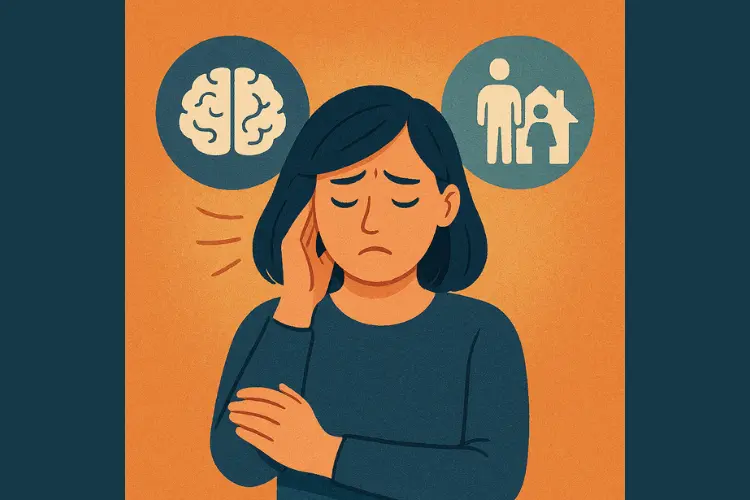Introduction
In today’s world, social media connects billions. It entertains, informs, and keeps us close to friends and family. But recent research reveals a surprising truth. Social media might be more addictive than alcohol and cigarettes. A new study by the University of Chicago’s Booth Business School shows that people crave social media more often than they crave drinking or smoking. This finding highlights how deeply social media impacts our daily lives. Let’s explore this study and what it means for our habits, health, and well-being.The Study at a Glance
Researchers surveyed 205 people. They asked them multiple times during the day about their cravings. Participants had to say what they craved most and if they had satisfied that craving.
The results were eye-opening. Social media ranked higher than both alcohol and cigarettes in craving frequency. Only sleep and leisure activities ranked above social media.
This means many people feel a strong urge to check social media regularly, more than reaching for a drink or a cigarette.
Why is this the case? To understand, we need to look at what makes social media so addictive.
Why Is Social Media So Addictive?
Social media taps into our brain’s reward system. When we get likes, comments, or new followers, the brain releases dopamine. Dopamine is the chemical linked to pleasure and motivation.
This dopamine hit feels good and encourages us to repeat the behavior. Checking social media becomes a loop: crave, check, reward, repeat.
Unlike alcohol or cigarettes, social media offers instant gratification. You get feedback right away. You don’t need to wait or prepare.
Algorithms also play a big role. They show content tailored to your preferences, keeping you engaged longer. Notifications alert you, pulling you back even when you want to stop.
Endless scrolling is another factor. There is no clear stopping point, so users can lose track of time.
All these elements combined make social media hard to resist.
The Bigger Picture: Impact on Health and Life
Being addicted to social media can harm more than just your time. It affects mental health. Many users report feeling anxious, stressed, or lonely after long social media sessions.
Social media can disrupt sleep. The blue light from screens interferes with melatonin production, making it harder to fall asleep. Plus, the urge to check feeds before bed delays rest.
Productivity suffers too. Frequent social media breaks interrupt focus, making work or study less efficient.
Relationships may also suffer. Time spent online can replace face-to-face interactions, leading to feelings of isolation.
Understanding these effects helps us see social media addiction as a serious issue, not just a harmless habit.
Behind Sleep and Leisure – What That Tells Us
The study showed that only sleep and leisure cravings topped social media cravings. Why?
Sleep is a biological need. When tired, our bodies demand rest to function. We can’t ignore this craving without serious consequences.
Leisure activities, like hobbies or exercise, offer relaxation and fun. People naturally crave breaks and downtime.
Social media fits somewhere between these two. It can be a leisure activity but also a source of stress or distraction.
This shows social media’s complex role in our lives. It’s both a way to relax and a potential source of anxiety.
What Can Be Done?
Recognizing the problem is the first step. Here are some practical tips to reduce social media addiction:
- Set Time Limits: Use phone settings or apps to limit daily social media use. Stick to these limits strictly.
- Turn Off Notifications: Disable unnecessary alerts. This helps reduce the urge to check your phone constantly.
- Schedule Social Media Breaks: Dedicate specific times in the day for social media. Avoid random or impulsive checking.
- Engage in Offline Activities: Spend more time on hobbies, exercise, or socializing in person.
- Practice Mindfulness: Notice when you feel the urge to check social media. Pause and ask if it’s necessary.
- Use Tools Like CleanRouter: CleanRouter is a powerful internet filtering device that helps parents and individuals control online access. It blocks distracting or harmful sites, making it easier to stick to healthy habits.
Conclusion
Social media addiction is real and affects millions. This new study from the University of Chicago highlights how powerful social media cravings can be—surpassing even cigarettes and alcohol.
Being aware of these cravings helps us take control. By setting limits, turning off notifications, and engaging more offline, we can reduce social media’s grip.
For families or individuals struggling with managing screen time, tools like CleanRouter provide strong support. It filters and controls internet use, helping users build healthier digital habits.
Social media is a part of life, but it should not control us. By understanding its addictive nature, we can use it wisely and protect our well-being.




